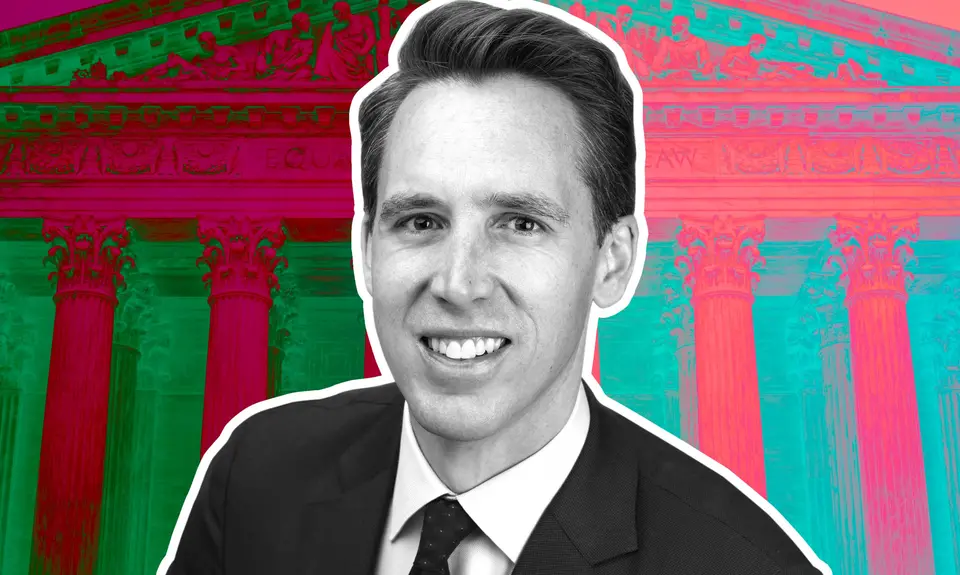Republican Sen. Josh Hawley of Missouri questioned the efficacy of the religious-right movement after the Supreme Court ruled Monday that the Civil Rights Act of 1964 protects LGBTQ people from workplace discrimination—a ruling authored by President Donald Trump’s first Supreme Court nominee Neil Gorsuch.
Hawley was far from alone with his disdain for the ruling. Anti-LGBTQ groups and outlets expressed alarm. Family Research Council president Tony Perkins wrote in a blog post Wednesday, “Suddenly, we fear for our kids' classrooms, our sons and daughters in the military, the future of adoption and competition, and the vanishing hopes of any Christian to run a business or ministry without being sued.”
On Tuesday, Perkins hosted Hawley on his radio show “Washington Watch with Tony Perkins” after Hawley gave a speech on the Senate floor calling the Supreme Court’s ruling a "piece of legislation" and “seismic.” Politico reported that Hawley declared that the ruling “represents the end of the conservative legal movement.” He echoed those sentiments during his interview with Perkins.
“For religious conservatives, people of faith, who have labored here in the vineyard so to speak, I think that this result—it really is going to cause people to question: What is it we have been doing? What is it that we have been working toward if this is always the result at the end of the day? We have got to do better than this,” Howley said.
Howley said that he was ultimately hopeful that religious conservatives “of all backgrounds” would be motivated to demonstrate leadership after the ruling.
“That would be a good thing for this movement, for the country,” Hawley said.
Perkins jumped in to insist that he and Hawley were not seeking Supreme Court justices who would “legislate from the bench” in a way that fulfilled their political desires, but rather they sought justices who would adhere to the U.S. Constitution and “the true meaning of words.”
“There’s almost no point in writing down the laws. We might as well just let the justices just tell us what they think should be the right policy in any given case,” Hawley said sarcastically. “Why have the laws written down at all if the words are not going to hold the meaning they had at the time?”







